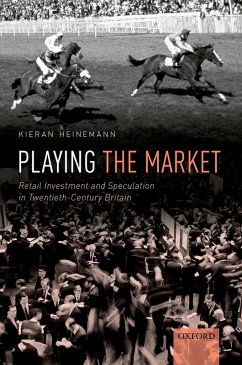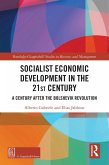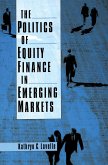Nowhere in Europe are people more likely to enjoy a regular flutter in stocks and shares than in Britain. Whether we consider the millions of online stockbroking accounts or the billions spent on spread betting - it is a national pastime in today's Britain to play the markets. How did this distinctively British obsession with investment and speculation come about? Playing the Market tells this story by exploring the history of financial capitalism in Britain during the twentieth century from below. It explains how and why everyday British people increasingly invested, speculated, and gambled in stocks and shares from the outbreak of World War I, over the postwar decades and the Thatcher years, up until the premiership of Tony Blair. The study accounts for a momentous shift in attitudes towards stock market investment that occurred throughout the twentieth century. In the interwar period, traditional moral and cultural constraints about the stock market, which were still powerful in the Victorian period, gradually began to collapse in public and private life. In the following decades, financial securities lost their stigma of being either immoral or suitable only for the upper classes. Promising higher than average returns and a similar thrill of risk and reward as gambling in horses or the football pools, the stock market became a popular pastime for millions of Britons - even in the postwar decades, when Britain had nationalized industries and politicians of both parties indulged in staunchly anti-finance rhetoric. With the expansion of popular investment after both world wars, Britain developed a stock market culture that was unique across Europe and gave rise to a market populist sentiment that eventually proved fertile soil for the arrival of Thatcherism.
Dieser Download kann aus rechtlichen Gründen nur mit Rechnungsadresse in A, B, BG, CY, CZ, D, DK, EW, E, FIN, F, GR, HR, H, IRL, I, LT, L, LR, M, NL, PL, P, R, S, SLO, SK ausgeliefert werden.









